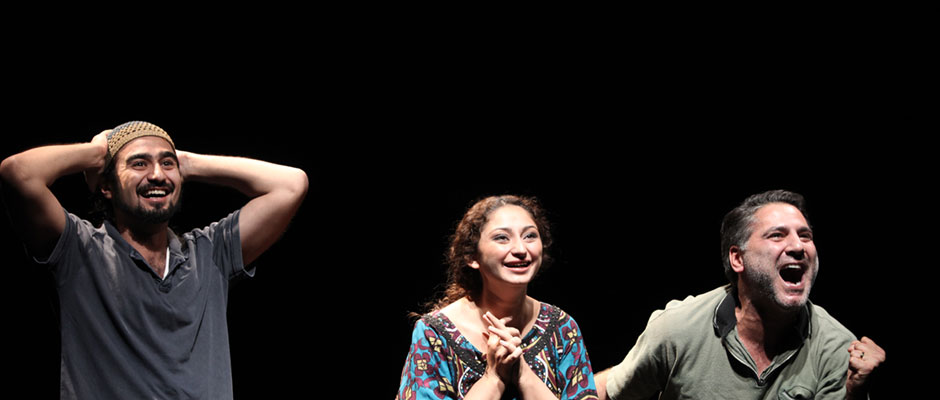
With a short run of only four days as part of the Melbourne Festival, those lucky enough to catch Aftermath at the Malthouse bore witness to an astounding piece of theatre that provided an insight into the experience of civilian Iraqis after the arrival of US troops in 2003.
Playwrights Jessica Blank and Erik Jensen – who have an established style of documentary theatre (previously collaborating on The Exonerated, based on interviews with exonerated death-row inmates) – created Aftermath with the intention of bringing a personal face to the oft-glossed-over civilian casualties of the Iraq war.
“a lot of the damage that gets done in the world happens because we are encouraged, culturally, to see people who are different from us as ‘other’ …”
Believing that “a lot of the damage that gets done in the world happens because we are encouraged, culturally, to see people who are different from us as ‘other’, to abstract them, to put them somehow in a different category from ourselves”, Blank and Jensen have constructed a narrative that encourages the audience to empathise with its subjects, who tell six different stories of trauma and loss. The characters represent the diverse cross-section of Iraqi society. Their dialogue is formed using transcripts of interviews (held in Jordan) with 35 people made refugees as a result of the conflict.
With pared back stage direction, the success of this work relies on the talents of the actors and the compelling material they work with. As the characters address the audience informally, viewers are led into entertaining conversation with an endearingly vain dermatologist, a charismatic Imam, and a friendly pharmacist, among others.
Aftermath achieves its aim of giving voice to the human cost of a highly political war, a war that, in the minds of many, continues to be a battle of ideologies. Questions of justice and human integrity are raised. But although there is a clear judgement call made on many of the actions carried out by US government, the play stops short of pronouncing an outcome for future US–Iraq relations, focusing instead on the physical and emotional impact this turbulent relationship has had on its subjects, and their own feelings toward the prospect of future contact.
If Aftermath is to be faulted for anything (and this tightly scripted, well directed play doesn’t have too many shortcomings), it is that when the character’s stories crescendo – in threats, torture, bombings and murder – the strength of skill of most of the actors is what appears most obvious, and the sole exception or two equally so. Whether this is the fault of the actors is debateable – at best, the material is difficult to do justice to. This is especially clear when it’s something as incomprehensible as grief and rage at an unprovoked and unexplained murder; or the ongoing struggle of a woman who loses everyone she loves in one random “accident”.
A question of accuracy is raised – are these the words of Blank and Jensen’s original interviewees repeated verbatim? In which case, how can someone’s spontaneous outpourings feel contrived, almost melodramatic? Or have their words been edited to add greater drama? Have they been altered to make a point?
… an engaging and highly polished work.
All in all, however, this production is not only a worthwhile contribution to the discussion and understanding of the Iraq war and its costs, but also an engaging and highly polished work. Independent of any political agenda, Aftermath is an example of high-quality theatre, and bodes well for the future artistic output of Blank and Jensen.
Aftermath ran from October 11 to 14 as part of the Melbourne Festival. The performance was presented in association with ArKtype and Amnesty International. It is an original production of the New York Theater Workshop.

